“Double the … Fun?” Dealing with a Dual Diagnosis
By Guest Blogger Laura Laxton
If you haven’t already, meet Malcolm.
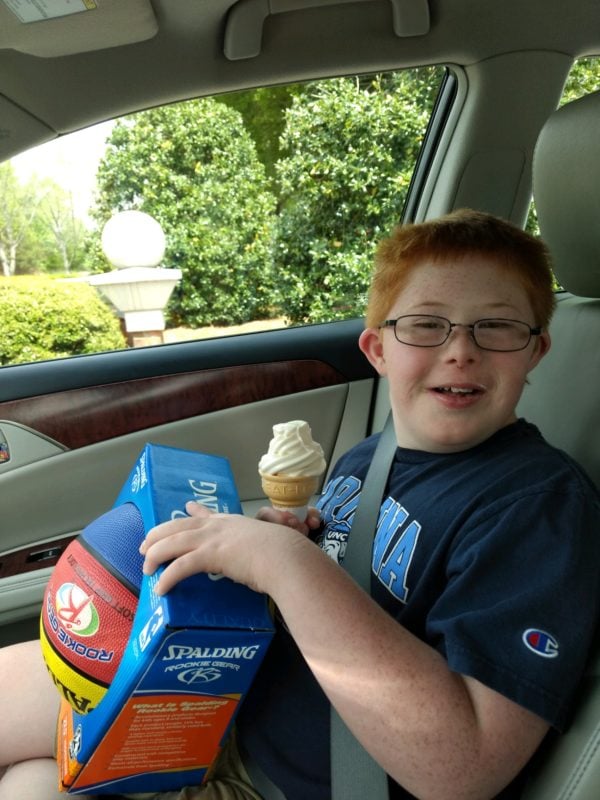
He is 11; finishing up elementary school; loves basketball, baseball and his teen-age sister (much to her long-suffering annoyance); and, as you can tell, has Down syndrome.
We found out about the DS prenatally; however, like every other child that’s ever been born, he kept a few things up his sleeve to spring on us when we least expect it. For example, it was a little more than a year ago that he was diagnosed with Autism Spectrum Disorder, in addition to the DS. And while we weren’t entirely surprised (we pushed for the evaluation because my mom instincts were going off, despite being told behaviors and communication issues were because of the DS), has certainly changed some things.
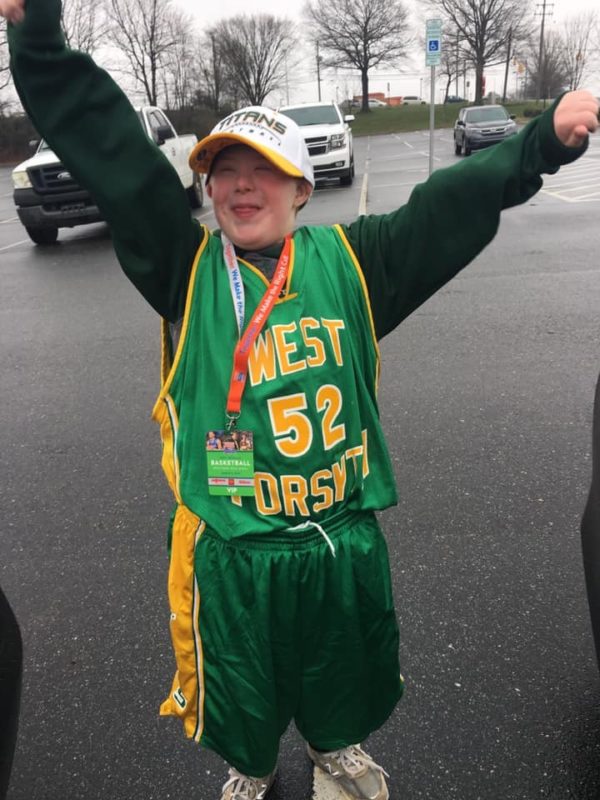
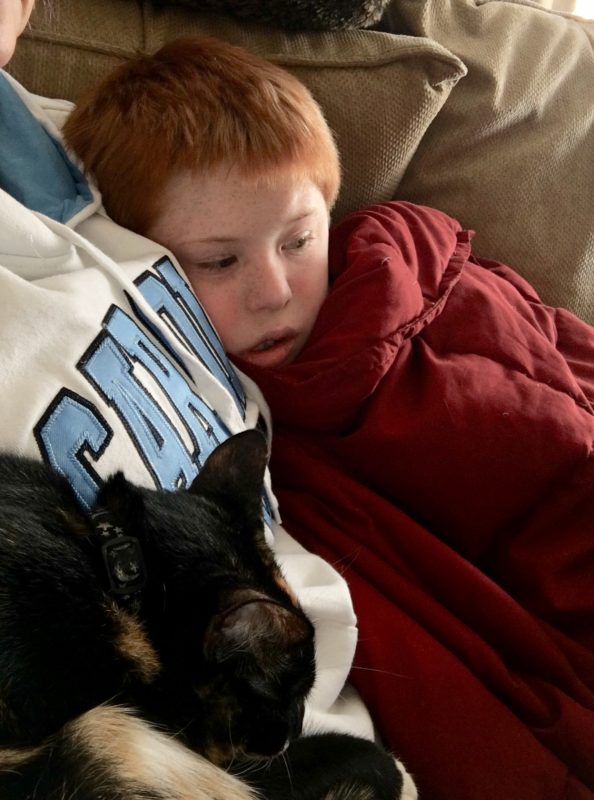
On one hand, I’ve felt some relief on many levels because now I understand why he does some things or reacts to situations a particular way, and I can reset my expectations where needed. Also, we have a better idea now of how to help him. For example, applied behavioral analysis (ABA) services help tremendously with reducing unwanted behaviors and reinforcing desired ones. That has given us a huge beacon of hope, but the process is not easy.
For one thing, it can be kind of intrusive, because you now have someone with your child – including in your home – for 15-40+ hours each week. And I don’t know about you, but I cannot keep my house in “company-ready” condition for that extended period of time.
(Who am I kidding? My house – on its best day – does not meet what my mother or grandmother would consider “company-ready”! Instead I strive for “welcoming to all.”)
Also, everyone in his life – teachers, after school personnel, family members, extended family members, sitters – has to adhere to the behavior strategies, some of which go against what we’ve been taught we “should” do as parents. It is reeeeeally difficult to not react at all when he hits you or knocks everything off the table, even though we know he is actually communicating frustration at the situation.
And, of course, knowing that he has two challenges added another level of worry. Because that’s what we moms do.
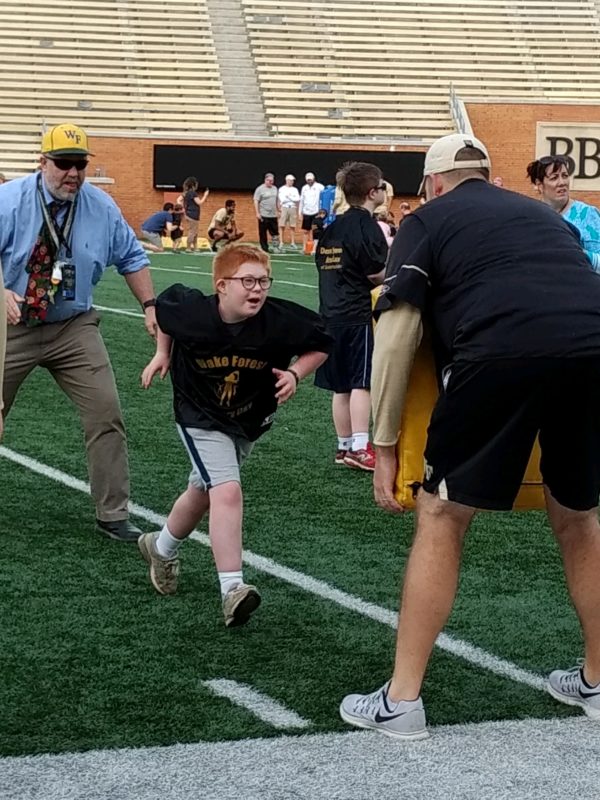
Both children and adults with disabilities are much more likely to suffer abuse than those without disabilities. The statistics vary according to what source and year the data comes from, but across the board it is several times more likely to happen to Malcolm. And if it does, his ability to let someone know is limited. That. Terrifies. Me. As does the possibility of him getting lost, because he cannot tell someone our names and phone numbers in a way they would understand. With him, we are advised to know the bodies of water within a 2-mile radius of places he frequents, because children with autism tend to be drawn to water, so if he goes missing, that is where we should look first. We never thought about that at all with his sister.
Malcolm still requires a lot of hands-on parenting, too. We don’t leave him home alone, and his lack of a sense of danger means we stay vigilant all the time. His sleep patterns tend to be disrupted, so a full night’s sleep is more precious and rare than a unicorn sighting. I thought (hoped? dreamed?) those nights and the bleary days that follow would have ended after the newborn stage, buuuuuuuuuuut no.
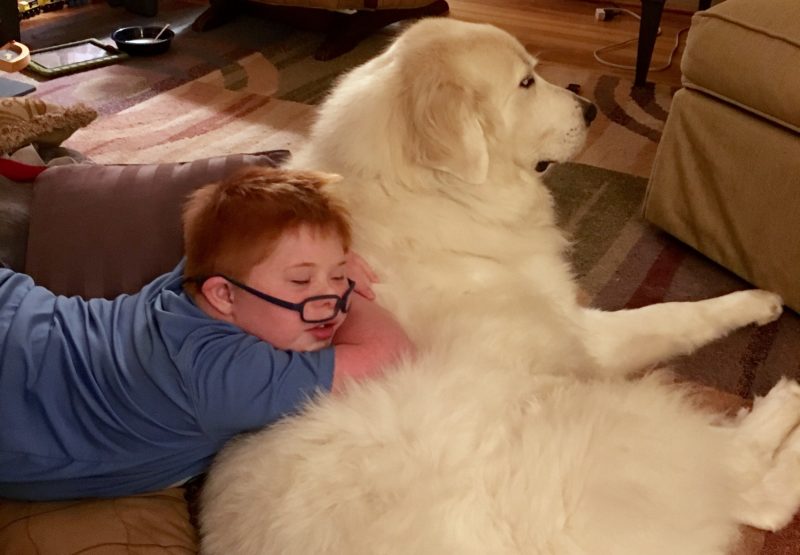
No matter how much I do as his mom, I always feel like I haven’t done enough. That if I just did this other thing or method or parenting trick, he would get significantly more benefit, which would lead to a better future. Or if I stayed on top of the latest research for DS and autism, I would know better how to help him. Or if we were involved in this group or that group, or went to conference A instead of conference B, or … The whirling brain cycle doesn’t ever seem to take a break.
Regardless of all that, I still count having the diagnosis and knowing as a positive. Of course, a diagnosis does not define who a child or person is, any more than hair color or whether they hate the taste of cilantro. Neither the Down syndrome nor the autism is what makes Malcolm, Malcolm, and he is the same silly, sweet (except when he’s not), snuggly guy now that he was before. He still loves attending West Forsyth sporting events with his dad, flirting with older females and swinging in the backyard.
As rough as the rough patches may be, we also have more opportunity to slow down, step out of the rat race, and savor what happens in the moment. He reminds me every day that no matter how many aspects of life we can’t control, we can choose how we respond and whether or not to be happy. And that? Is pretty awesome.


Read other blogs written by Laura Laxton by clicking here!
Want to see more blogs like this and get notifications on local events in the Triad? Subscribe to TMoM’s free weekly newsletters here.

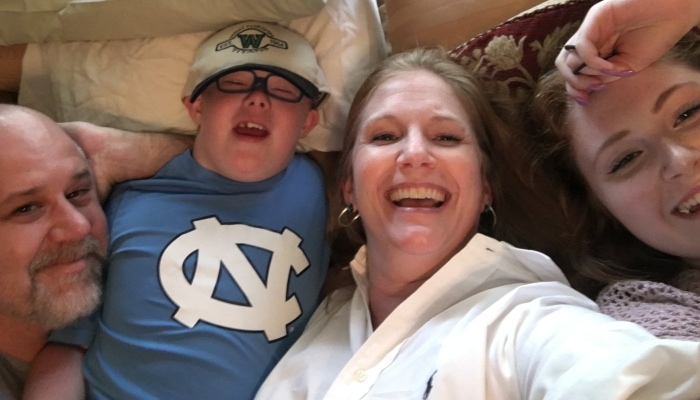

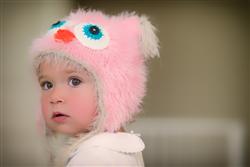


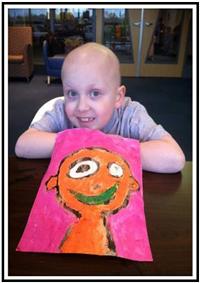

Awesome read Laura, thanks for sharing.
Malcolm looks like he is full of personality! You can tell through your pictures that he is surrounded by love and is so happy. You’re doing a great job, Mom!